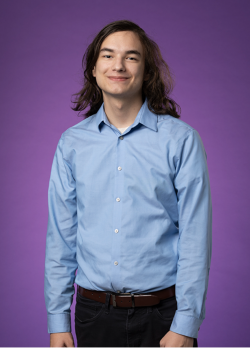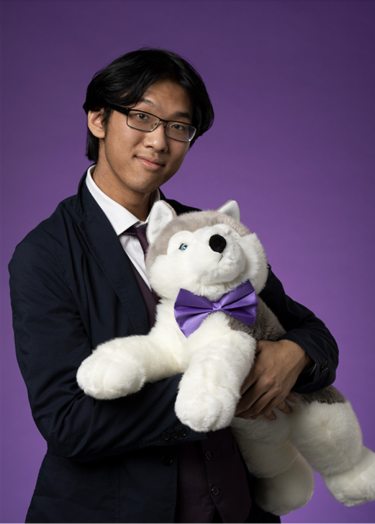Two SEFS undergraduate students in the Environmental Science and Resource Management major were recognized for their passion, leadership and commitment in the UW community as part of the 2023 Husky 100 list this week. Congratulations!
Maxwell Perkins
B.S. Environmental Science and Terrestrial Resource Management; B.S. Biology, Quantitative Science; History; Interdisciplinary Honors

SEFS student Max Perkins is dedicated to addressing ongoing climate injustices through interdisciplinary research, nature-based solutions, and building community.
“I decided to pursue ESRM because I care deeply about climate change and its uneven impacts on marginalized communities. I had learned about this in high school and wanted to take classes to understand the ecological and sustainability principles behind climate action. I’m really grateful to ESRM for allowing me to explore these concepts in interdisciplinary contexts,” said Perkins.
As a coastal science intern at the Pacific Northwest National Laboratory, Perkins has worked to map coastal hazards and resilient landscapes in Puerto Rico. Perkins also founded a fundraising organization at UW, Domino Effect, which hosts gaming events to raise money and awareness for climate justice. “In just one year, the events I organized raised a total of $15,000 for the Coalition for Rainforest Nations, and they succeeded in raising awareness for climate justice in the gaming community. Some of my ESRM classes helped me a lot with growing Domino Effect into an effective organization, like Environmental Econ and Sustainable Finance,” said Perkins.
After graduation, Perkins will join the UW School of Marine and Environmental Affairs as a graduate student, where he’ll continue his coastal resiliency and climate adaptation research.
Jonathan Kwong
B.S. Environmental Science and Resource Management, American Indian Studies, Oceanic and Pacific Islander Studies
SEFS student Jonathan Kwong is working to make environmental science accessible and equitable, and uplift traditional ecological knowledge within the field.
“As a product of my communities, I am a trans-disciplinary thinker who is guided to decompose systems of oppression by centering queer people of color through storytelling and communal caring. In the conservation field, I am constantly reimagining with others how environmental scientists will work collaboratively with communities of color. Being a steward of safe spaces, I connect with people through my artistic and interstitial practice that involves poetry, creative writing, painting, weaving, and carving,” said Kwong.

